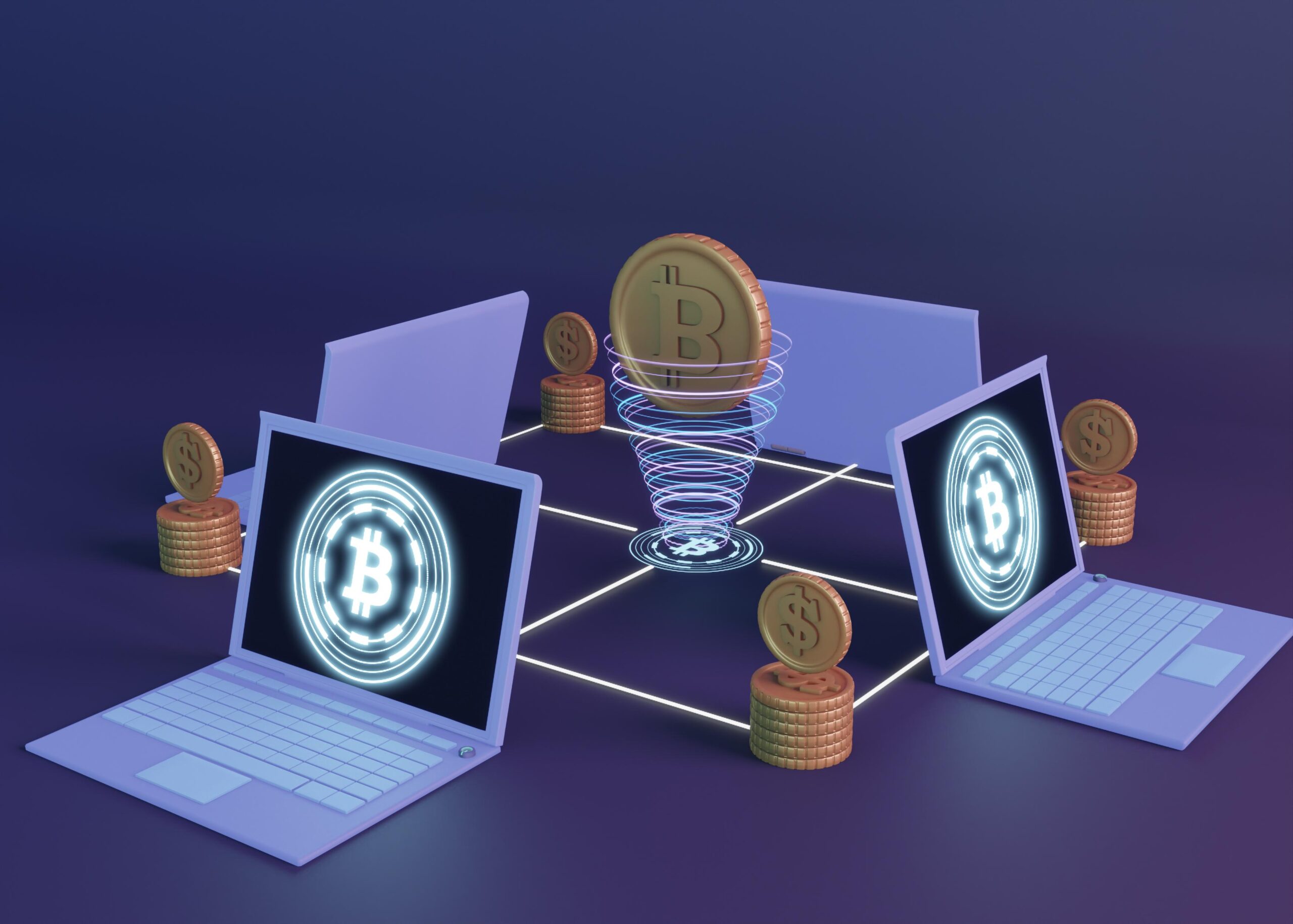Introduction
Hey there, crypto enthusiasts and land lovers! Ever wondered how digital currencies like Bitcoin and Ethereum are shaking up the real estate game? Buckle up, because we’re diving into the thrilling world of cryptocurrency and its impact on land transactions. It’s like a rollercoaster of risks and rewards, and we’re here to spill the beans on the whole ride.
The Rise of Cryptocurrency in Real Estate: A Digital Revolution in the Property World
Cryptocurrency, once the enigmatic currency of the tech-savvy and the domain of financial rebels, has evolved into a formidable player in the world of real estate. The fusion of these digital currencies with property transactions has ignited a digital revolution, reshaping the landscape of how we buy and sell land. In this section, we’ll take a deep dive into the historical roots of cryptocurrency in real estate and unravel the myriad ways it has disrupted traditional property transactions.
Historical Context: Cryptocurrency’s Foray into Real Estate
To truly grasp the impact of cryptocurrency in real estate, it’s essential to rewind the clock and revisit its humble beginnings. Cryptocurrency, led by the iconic Bitcoin, initially emerged as a decentralized, peer-to-peer electronic cash system aiming to bypass traditional financial institutions. As it gained popularity and trust, its applications expanded beyond online transactions to more tangible assets, including real estate.
The early 2010s witnessed pioneering individuals who, driven by the desire for financial autonomy and the allure of emerging technologies, experimented with using Bitcoin to buy property. These transactions, often seen as avant-garde at the time, laid the groundwork for the broader acceptance of cryptocurrency in the real estate sector.
Advantages of Cryptocurrency in Real Estate
As cryptocurrency made its foray into real estate, it brought with it a slew of advantages that captured the attention of both buyers and sellers.
1. Speed and Efficiency: Traditional real estate transactions, laden with paperwork and intermediaries, can be a bureaucratic marathon. Cryptocurrency streamlines this process, allowing for faster and more efficient transactions. With smart contracts and blockchain technology, the tedious steps in property transfers can be executed seamlessly and at a fraction of the usual time.
2. Lower Transaction Costs: The traditional real estate ecosystem is notorious for its hefty transaction fees involving various intermediaries such as banks, brokers, and lawyers. Cryptocurrency, being decentralized, significantly reduces these costs. The direct peer-to-peer nature of cryptocurrency transactions eliminates the need for many intermediaries, resulting in more cost-effective property deals.
3. Global Accessibility: Cryptocurrency operates on a global scale, transcending borders and time zones. This global accessibility has opened up new horizons for real estate transactions, enabling buyers from different parts of the world to invest in properties without the traditional hurdles associated with cross-border transactions. Cryptocurrency turns the world into a borderless marketplace for real estate.
In essence, the rise of cryptocurrency in real estate is not merely a trend but a transformative force challenging the traditional norms and dynamics of property transactions.
Looking Beyond Bitcoin: The Diversity of Cryptocurrencies in Real Estate
While Bitcoin paved the way, other cryptocurrencies, often referred to as altcoins, have also joined the real estate party. Ethereum, with its smart contract capabilities, has allowed for more complex and versatile transactions. Other tokens, built on blockchain platforms, have introduced fractional ownership models, enabling investors to own fractions of high-value properties.
Cryptocurrency has evolved from being a niche experiment to a diverse toolkit for real estate transactions, offering solutions that cater to various needs and preferences within the market.
Challenges and Skepticism: Navigating the Unknown Terrain
With every revolutionary force, resistance and skepticism inevitably arise. Cryptocurrency’s entry into real estate has been met with challenges that have tempered its rapid adoption.
1. Volatility: The most prominent obstacle is the inherent volatility of cryptocurrency prices. The value of digital currencies can fluctuate dramatically over short periods, introducing an element of risk for both buyers and sellers. The uncertainty of how much a Bitcoin or Ethereum might be worth tomorrow can make parties hesitant to engage in transactions.
2. Legal and Regulatory Ambiguity: Unlike traditional currencies regulated by central authorities, cryptocurrencies operate in a decentralized environment. This decentralization poses challenges in terms of legal frameworks and regulatory oversight. Different jurisdictions treat cryptocurrency transactions differently, adding complexity and ambiguity to the legal aspects of real estate deals involving digital currencies.
In navigating the rise of cryptocurrency in real estate, stakeholders must grapple with these challenges while also acknowledging the potential rewards.
Real Estate’s Embrace of the Digital Revolution
Despite the challenges, the real estate industry is gradually embracing the digital revolution spurred by cryptocurrency. Notable projects and developments, often driven by forward-thinking developers and tech-savvy investors, are paving the way for a new era of property transactions.
From luxury apartments in bustling metropolises to quaint cottages in serene countryside landscapes, properties listed for cryptocurrency transactions are becoming increasingly common. These listings showcase the growing acceptance of digital currencies as a legitimate and viable means of conducting real estate deals.
The rise of cryptocurrency in real estate is not a fleeting trend; it’s a paradigm shift that challenges the traditional norms of property transactions. As we venture further into this uncharted terrain, it’s essential for both industry professionals and enthusiasts to stay informed, adapt to evolving technologies, and be open to the possibilities that the digital revolution brings to the world of real estate. The journey has just begun, and the destination promises to redefine how we perceive, transact, and invest in real estate in the years to come.
Risks Associated with Cryptocurrency in Land Transactions: Navigating the Uncharted Territory
While the rise of cryptocurrency in real estate brings a wave of excitement and innovation, it’s not all sunshine and rainbows. In this section, we’ll dive into the risks associated with using cryptocurrency in land transactions, exploring the unpredictable terrain that buyers, sellers, and investors must navigate.
- Volatility: The Rollercoaster Ride
Cryptocurrency is notorious for its price volatility. If traditional currencies are calm rivers, cryptocurrencies are roaring rapids. The value of digital currencies can experience rapid and unpredictable fluctuations, turning what seemed like a wise investment into a financial rollercoaster.
Imagine this: You agree to sell a prime piece of land for a certain amount in Bitcoin, expecting a tidy profit. Suddenly, the cryptocurrency market takes a nosedive, and the value of your agreed-upon Bitcoin drops significantly. You’re left with less than what you initially bargained for, and the volatility of cryptocurrency becomes a double-edged sword.
- Legal and Regulatory Ambiguity: Navigating a Gray Area
Cryptocurrency operates in a decentralized and relatively unregulated environment. While this autonomy is one of its strengths, it also introduces legal and regulatory uncertainties, especially in the realm of real estate.
Different jurisdictions have varied stances on the legality and regulation of cryptocurrency transactions. The lack of a standardized legal framework can leave buyers and sellers in a legal gray area, raising questions about property rights, contract enforceability, and taxation. Engaging in cryptocurrency land transactions requires a keen awareness of local regulations and a proactive approach to legal considerations.
- Security Concerns: Guarding Against Cyber Threats
The decentralized nature of cryptocurrency transactions relies heavily on blockchain technology, which is generally considered secure. However, the digital realm is not immune to cyber threats and hacking attempts. Security breaches can lead to the loss of funds, unauthorized access to transaction details, or manipulation of smart contracts.
In the context of land transactions, the security of cryptocurrency becomes paramount. A breach in the digital infrastructure could compromise the integrity of the transaction, leading to financial losses or disputes between parties involved.
- Lack of Consumer Protection: A Double-Edged Sword
Traditional financial systems often come with built-in consumer protection mechanisms. Cryptocurrency, being decentralized and peer-to-peer, lacks these safety nets. Once a transaction is executed, it’s final – there’s no bank to reverse the payment or regulatory body to mediate disputes.
While the lack of intermediaries is a core principle of cryptocurrency, it also means that individuals must exercise caution and due diligence. In the event of fraud or disputes, recovering funds can be a complex and challenging process, highlighting the importance of a proactive approach to risk management.
- Adoption Risks: A Market in Flux
Cryptocurrency, despite its growing acceptance, is still in the process of mainstream adoption. The market is in a constant state of flux, with evolving technologies, changing public perceptions, and regulatory developments influencing its trajectory.
Investing in land with cryptocurrency introduces a layer of uncertainty tied to the adoption and acceptance of digital currencies in the real estate market. While more properties are being listed for cryptocurrency transactions, the overall market sentiment can impact the feasibility and success of such transactions.
In conclusion, the risks associated with cryptocurrency in land transactions are not to be underestimated. It’s a dynamic landscape that demands a thorough understanding of the potential pitfalls and a proactive approach to risk mitigation. As stakeholders continue to explore the intersection of cryptocurrency and real estate, staying informed, seeking legal counsel, and implementing robust security measures become essential tools in navigating this uncharted territory. The rewards may be significant, but only for those who approach it with a clear-eyed awareness of the risks involved.
Navigating Cryptocurrency Transactions in Land Deals: Your Guide Through the Digital Wilderness
Alright, intrepid adventurers, you’ve decided to take on the challenge of using cryptocurrency in your land deals. Buckle up, because in this section, we’re your guides through the uncharted territory of navigating cryptocurrency transactions in the world of real estate.
- Due Diligence: Know Thy Digital Coin
Before you dive headfirst into the crypto realm, it’s essential to know your digital coin like the back of your hand. Each cryptocurrency operates on its own blockchain, and their features can vary significantly. Bitcoin might be the household name, but others like Ethereum offer smart contract capabilities that can revolutionize your land transactions.
Educate yourself on the ins and outs of the cryptocurrency you’re dealing with. Understand transaction speeds, fees, and the specific features that align with your land transaction needs. This due diligence isn’t just about protecting yourself; it’s about making informed decisions that can enhance the efficiency and success of your deals.
- Legal Assistance: The Crypto Sherpa You Need
Cryptocurrency and blockchain technology bring a new set of legal considerations to the table. The decentralized nature of these transactions means you need a legal Sherpa who knows the digital terrain.
Hire an attorney well-versed in blockchain and real estate law. They’ll guide you through the legal nuances, help you understand local regulations, and ensure that your land transactions comply with the law. It’s like having a seasoned guide who knows the shortcuts and potential pitfalls in this brave new world.
- Mitigating Risks: Your Crypto Armor
Cryptocurrency might be the hero of this story, but every hero needs armor. In the digital landscape, security is your armor. Implement robust security measures to safeguard your cryptocurrency holdings and transactions.
Consider using hardware wallets for storage, enabling two-factor authentication, and staying updated on the latest cybersecurity practices. Remember, the digital realm can be treacherous, but with the right armor, you can navigate it with confidence.
- Environmental Considerations: Green Crypto Choices
As you venture deeper into cryptocurrency transactions, consider the environmental impact of your digital endeavors. Some cryptocurrencies, like Bitcoin, have faced criticism for their energy-intensive mining processes.
Explore eco-friendly cryptocurrencies that use less energy or employ consensus mechanisms that are more environmentally sustainable. Being conscious of the environmental footprint of your cryptocurrency choices aligns with the growing trend towards sustainable and responsible investing.
- Title Searches: Ensuring a Clean Digital Title
Just as you would conduct a title search in traditional real estate deals, the digital realm requires its own version of due diligence. Ensure that the cryptocurrency you’re using has a clean digital title – free from encumbrances, fraud, or legal disputes.
Perform thorough research on the blockchain to verify ownership, check for any outstanding liens, and confirm that the cryptocurrency hasn’t been involved in any illicit activities. It’s the digital equivalent of inspecting the historical records of a property to ensure a clean title.
- Smart Contracts: The Digital Handshake
Smart contracts are the digital handshakes of cryptocurrency transactions. These self-executing contracts automatically enforce the terms and conditions agreed upon by both parties. Think of it as the code that ensures everyone plays by the rules.
When engaging in land transactions with cryptocurrency, leverage smart contracts to streamline the process. These contracts can automate tasks like fund transfers, property transfers, and even condition-based actions, reducing the need for intermediaries and potential points of failure.
- Stay Updated: The Digital Explorer’s Toolkit
The cryptocurrency landscape is dynamic, with new technologies and trends emerging regularly. As a digital explorer navigating land transactions, keep your toolkit updated with the latest advancements.
Subscribe to reputable cryptocurrency news sources, join online forums, and participate in discussions to stay informed. Being on the cutting edge ensures you’re well-prepared to adapt to changes and seize new opportunities in the ever-evolving digital frontier.
In the world of cryptocurrency transactions in land deals, you’re not just a participant; you’re an explorer, navigating uncharted territory. By combining education, legal guidance, security measures, and a forward-thinking mindset, you can confidently navigate the digital wilderness, turning cryptocurrency transactions into a successful and transformative adventure in real estate. As the digital explorer’s motto goes, “Stay informed, stay secure, and let the blockchain guide your way.”
The Future Landscape: Trends and Developments in Cryptocurrency Land Transactions
Buckle up, fellow pioneers, because as we explore the current frontiers of cryptocurrency in real estate, it’s equally crucial to set our sights on the horizon. In this section, we’ll cast our gaze into the crystal ball of the future, unraveling the potential trends and developments that could shape the landscape of cryptocurrency transactions in land deals.
- Emerging Technologies in Blockchain: Beyond the Basics
As the backbone of cryptocurrency transactions, blockchain technology is destined for evolution. The future promises advancements that go beyond the basics of decentralized ledgers. Imagine blockchain platforms that integrate artificial intelligence, machine learning, and even augmented reality to enhance the efficiency and transparency of land transactions.
Smart contracts, the workhorses of crypto deals, may become even smarter, executing complex conditions with increased sophistication. The synergy of blockchain with other cutting-edge technologies could revolutionize how we perceive, transact, and manage real estate in the digital realm.
- Regulatory Developments: Clearing the Fog
One of the murkiest areas in the current cryptocurrency landscape is the lack of a comprehensive regulatory framework. However, the future could usher in a wave of clarity as governments and regulatory bodies catch up with the rapid evolution of digital currencies.
Expect to see clearer guidelines and regulations specific to cryptocurrency transactions in real estate. Governments may establish protocols for tax treatment, property rights, and consumer protection in the digital space. Regulatory developments will not only mitigate risks but also provide a more conducive environment for widespread adoption.
- Tokenization of Real Assets: Fractional Ownership 2.0
Tokenization is poised to be a game-changer, offering a new dimension to real estate investments. In the future, we might witness the widespread tokenization of real assets, allowing for fractional ownership of properties through blockchain-based tokens.
This development could democratize real estate investment, enabling individuals to own fractions of high-value properties. Picture a world where you can invest in a portion of a luxurious resort or a prime commercial space, all facilitated by blockchain tokens. Tokenization could open doors for a broader spectrum of investors, reshaping the dynamics of property ownership.
- Decentralized Autonomous Organizations (DAOs): Community Governance
Cryptocurrency communities are known for their decentralized ethos, and the future might see the rise of Decentralized Autonomous Organizations (DAOs) governing real estate projects. DAOs, powered by blockchain, allow community members to collectively make decisions and manage assets without the need for a central authority.
In the context of real estate, DAOs could fund and govern community-driven development projects. Imagine a neighborhood collectively deciding on infrastructure improvements or the development of communal spaces through a decentralized voting system. This approach could democratize urban planning and bring a new level of community involvement to real estate ventures.
- Green Cryptocurrencies: Sustainable Transactions
The environmental impact of cryptocurrency, particularly energy-intensive proof-of-work mechanisms like Bitcoin mining, has been a topic of concern. The future may witness the rise of eco-friendly cryptocurrencies that prioritize sustainability.
Green cryptocurrencies could employ consensus mechanisms that consume less energy, making them more environmentally friendly. As the global focus on sustainable practices intensifies, the demand for green alternatives in the cryptocurrency space could reshape the choices available for land transactions.
- Integration with Traditional Finance: Bridging the Gap
While cryptocurrencies started as disruptors, the future could see a more harmonious integration with traditional finance systems. Collaboration between blockchain-based platforms and established financial institutions could streamline the process of using cryptocurrencies in real estate transactions.
This integration might include the development of regulatory-compliant financial products, such as crypto-backed mortgages or investment funds. Bridging the gap between the old and the new could bring a level of stability and familiarity that facilitates broader adoption of cryptocurrency in the real estate sector.
- Enhanced Security Measures: Fortifying the Digital Fortress
With the increasing sophistication of cyber threats, future cryptocurrency transactions will likely demand even more robust security measures. Enhanced encryption protocols, advanced biometric authentication, and multi-layered security frameworks could become standard practices.
The future landscape will prioritize the fortification of the digital fortress to safeguard against hacking attempts, fraudulent activities, and unauthorized access. As cryptocurrency transactions become more prevalent in real estate, ensuring the security of digital assets will be paramount.
In the ever-evolving world of cryptocurrency transactions in land deals, predicting the future is a blend of informed speculation and a touch of visionary foresight. While these trends and developments offer a glimpse into what might come to pass, the dynamic nature of technology and the digital economy ensures that surprises are always on the horizon. The key for both industry insiders and enthusiasts alike is to stay attuned to these shifts, adapt to emerging trends, and be ready to embrace the transformative potential of cryptocurrency in the realm of real estate. As the digital pioneers of this age, the journey is as exciting as the destination.
Expert Insights and Interviews
Ever wondered what the experts think? We’ve got real estate gurus and legal wizards spilling their thoughts. It’s like having a chat with the wise sages who’ve been around the block (pun intended) and have some juicy insights to share.
As our adventure winds down, we’ll sum it all up. Cryptocurrency and land transactions are like a love story – complicated, thrilling, and always evolving. This blog post is your map, your guide, and your friendly nudge to stay informed, keep your eyes open, and maybe – just maybe – catch the next wave of crypto shaping the future of land transactions. 🚀✨




